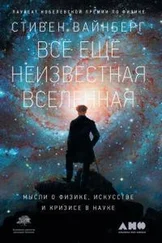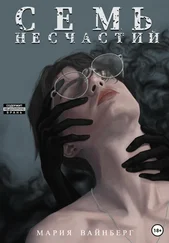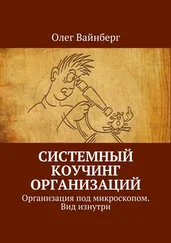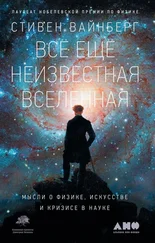Herbert Butterfield, The Origins of Modern Science , rev. ed. (Free Press, New York, 1957).
S. Chandrasekhar, Newton’s Principia for the Common Reader (Clarendon, Oxford, 1995).
R. Christianson, Tycho’s Island (Cambridge University Press, Cambridge, 2000).
Carlo M. Cipolla, Clocks and Culture 1300–1700 (W. W. Norton, New York, 1978).
Marshall Clagett, ed., Critical Studies in the History of Science (University of Wisconsin Press, Madison, 1959). Статті I. B. Cohen та ін.
H. Floris Cohen, How Modern Science Came into the World – Four Civilizations, One 17th-Century Breakthrough (Amsterdam University Press, Amsterdam, 2010).
John Craig, Newton at the Mint (Cambridge University Press, Cambridge, 1946).
Robert P. Crease, World in the Balance – The Historic Quest for an Absolute System of Measurement (W. W. Norton, New York, 2011).
A. C. Crombie, Medieval and Early Modern Science (Doubleday Anchor, Garden City, N. Y., 1959).
–, Robert Grosseteste and the Origins of Experimental Science – 1100–1700 (Clarendon, Oxford, 1953).
Olivier Darrigol, A History of Optics from Greek Antiquity to the Nineteenth Century (Oxford University Press, Oxford, 2012).
Peter Dear, Revolutionizing the Sciences – European Knowledge and Its Ambitions, 1500–1700 , 2nd ed. (Princeton University Press, Princeton, N. J., and Oxford, 2009).
D. R. Dicks, Early Greek Astronomy to Aristotle (Cornell University Press, Ithaca, N. Y., 1970).
The Dictionary of Scientific Biography , ed. Charles Coulston Gillespie (Scribner, New York, 1970).
Stillman Drake, Galileo at Work – His Scientific Biography (University of Chicago Press, Chicago, Ill., 1978).
Pierre Duhem, The Aim and Structure of Physical Theory , trans. Philip K. Weiner (Athenaeum, New York, 1982).
–, Medieval Cosmology – Theories of Infinity, Place, Time, Void, and the Plurality of Worlds, trans. Roger Ariew (University of Chicago Press, Chicago, Ill., 1985).
–, To Save the Phenomena – An Essay on the Idea of Physical Theory from Plato to Galileo , trans. E. Dolan and C. Machler (University of Chicago Press, Chicago, Ill., 1969).
James Evans, The History and Practice of Ancient Astronomy (Oxford University Press, Oxford, 1998).
Annibale Fantoli, Galileo – For Copernicanism and for the Church , 2nd ed., trans. G. V. Coyne (University of Notre Dame Press, South Bend, Ind., 1996).
Maurice A. Finocchiaro, Retrying Galileo, 1633–1992 (University of California Press, Berkeley and Los Angeles, 2005).
E. M. Forster, Pharos and Pharillon (Knopf, New York, 1962).
Kathleen Freeman, The Pre-Socratic Philosophers , 3rd ed. (Basil Blackwell, Oxford, 1953).
Peter Galison, How Experiments End (University of Chicago Press, Chicago, Ill., 1987).
Edward Gibbon, The Decline and Fall of the Roman Empire (Everyman’s Library, New York, 1991).
James Gleick, Isaac Newton (Pantheon, New York, 2003).
Daniel W. Graham, Science Before Socrates – Parmenides, Anaxagoras, and the New Astronomy (Oxford University Press, Oxford, 2013).
Edward Grant, The Foundations of Modern Science in the Middle Ages (Cambridge University Press, Cambridge, 1996).
–, Planets, Stars, and Orbs – The Medieval Cosmos, 1200–1687 (Cambridge University Press, Cambridge, 1994).
Stephen Graukroger, ed., Descartes – Philosophy, Mathematics, and Physics (Harvester, Brighton, 1980).
Stephen Graukroger, John Schuster, and John Sutton, eds., Descartes’ Natural Philosophy (Routledge, London and New York, 2000).
Peter Green, Alexander to Actium (University of California Press, Berkeley, 1990).
Dimitri Gutas, Greek Thought, Arabic Culture – The Graeco-Arabic Translation Movement in Baghdad and Early ‘Abbasid Society (Routledge, London, 1998).
Rupert Hall, Philosophers at War: The Quarrel Between Newton and Leibniz (Cambridge University Press, Cambridge, 1980).
Charles Homer Haskins, The Rise of Universities (Cornell University Press, Ithaca, N. Y., 1957).
J. L. Heilbron, Galileo (Oxford University Press, Oxford, 2010).
Albert van Helden, Measuring the Universe – Cosmic Dimensions from Aristarchus to Halley (University of Chicago Press, Chicago, Ill., 1983).
P. K. Hitti, History of the Arabs (Macmillan, London, 1937).
J. P. Hogendijk and A. I. Sabra, eds., The Enterprise of Science in Islam = New Perspectives (MIT Press, Cambridge, Mass., 2003).
Toby E. Huff, Intellectual Curiosity and the Scientific Revolution (Cambridge University Press, Cambridge, 2011).
Jim al-Khalifi, The House of Wisdom (Penguin, New York, 2011).
Henry C. King, The History of the Telescope (Charles Griffin, Toronto, 1955; reprint, Dover, New York, 1979).
D. G. King-Hele and A. R. Hale, eds., “Newton’s Principia and His Legacy,” Notes and Records of the Royal Society of London 42, 1–122 (1988).
Alexandre Koyr№№№, From the Closed World to the Infinite Universe (Johns Hopkins University Press, Baltimore, Md., 1957).
Thomas S. Kuhn, The Copernican Revolution (Harvard University Press, Cambridge, Mass., 1957).
–, The Structure of Scientific Revolutions (University of Chicago Press, Chicago, Ill., 1962; 2nd ed. 1970).
David C. Lindberg, The Beginnings of Western Science (University of Chicago Press, Chicago, Ill., 1992; 2nd ed. 2007).
D. C. Lindberg and R. S. Westfall, eds., Reappraisals of the Scientific Revolution (Cambridge University Press, Cambridge, 2000).
G. E. R. Lloyd, Methods and Problems in Greek Science (Cambridge University Press, Cambridge, 1991).
Peter Machamer, ed., The Cambridge Companion to Galileo (Cambridge University Press, Cambridge, 1998).
Alberto A. Martínez, The Cult of Pythagoras – Man and Myth (University of Pittsburgh Press, Pittsburgh, Pa., 2012).
E. Masood, Science and Islam (Icon, London, 2009).
Robert K. Merton, “Motive Forces of the New Science,” Osiris 4, Part 2 (1938); reprinted in Science, Technology, and Society in Seventeenth-Century England (Howard Fertig, New York, 1970), and On Social Structure and Science , ed. Piotry Sztompka (University of Chicago Press, Chicago, Ill., 1996), pp. 223–40.
Otto Neugebauer, Astronomy and History – Selected Essays (Springer-Verlag, New York, 1983).
– A History of Ancient Mathematical Astronomy (Springer-Verlag, New York, 1975).
M. J. Osler, ed., Rethinking the Scientific Revolution (Cambridge University Press, Cambridge, 2000). Статті M. J. Osler, B. J. T. Dobbs, R. S. Westfall та ін.
Ingrid D. Rowland, Giordano Bruno – Philosopher and Heretic (Farrar, Straus and Giroux, New York, 2008).
George Sarton, Introduction to the History of Science , Volume 1, From Homer to Omar Khayyam (Carnegie Institution of Washington, Washington, D.C., 1927).
Erwin Schrödinger, Nature and the Greeks (Cambridge University Press, Cambridge, 1954).
Steven Shapin, The Scientific Revolution (University of Chicago Press, Chicago, Ill., 1996).
Dava Sobel, Galileo’s Daughter (Walker, New York, 1999).
Merlin L. Swartz, Studies in Islam (Oxford University Press, Oxford 1981).
N. M. Swerdlow and O. Neugebauer, Mathematical Astronomy in Copernicus’s De Revolutionibus (Springer-Verlag, New York, 1984).
Читать дальше

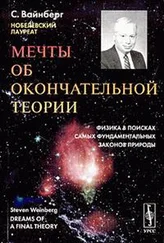
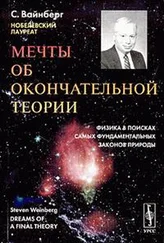
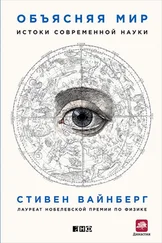
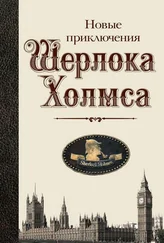
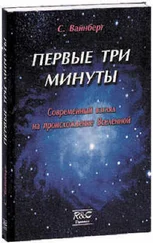
![Стивен Вайнберг - Первые три минуты [litres]](/books/398000/stiven-vajnberg-pervye-tri-minuty-litres-thumb.webp)
